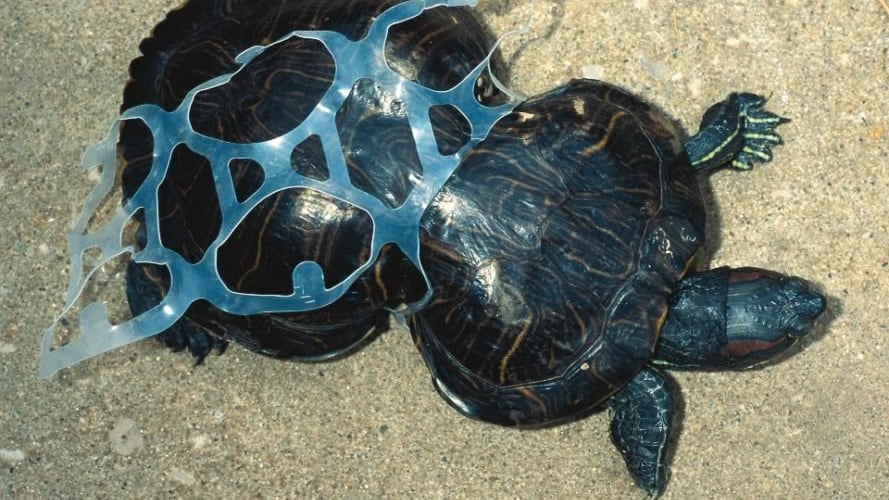For as long as I can remember, I and everyone else I know have been cutting up those plastic rings that hold six-packs together, supposedly to protect fish and wildlife. Recently, I heard some barroom know-it-all saying this isn’t a thing anymore, though he didn’t actually have any details. Can you set the record straight? —Tiffany
I’ll do my best. For what it’s worth, I also cut up those rings when I encounter them—though, to be honest, the case for doing so these days is decidedly mixed.
First, some background: The six-pack yoke (its official name) was invented in 1960, when humanity had yet to recognize the downsides of the plastics revolution. It’s easy to judge, but let’s not forget that for the previous 20,000 years our most durable building materials had been gutta-percha and bark—people were used to worrying that their houses wouldn’t last through the winter, not that their gum wrappers were in peril of outliving the sun.
Within a few decades, however, it had become clear that plastics had their drawbacks. Litter, gill nets, the Great Pacific Garbage Patch, Joan Rivers—all took their public relations toll, but perhaps no plastics-related spectacle captured the public’s imagination like innocent wildlife garroted by six-pack rings. A photo of a turtle with its shell deformed into a figure 8 by one of these yokes was shared 1.1 million times after being posted on Facebook in 2014. What heartless bastard would refuse to cut up their can rings after seeing such an image?
Certainly not me! I still do it—even though I happen to know that this famous photo was taken in 1993, just one year before federal regulations began requiring that six-pack yokes be made of plastic formulated to break down after a few months in the wild. (I can’t prove that this particular photo prompted the change, but the timing is suggestive.) Modern yokes don’t last long enough to do this kind of damage.
Before we break out the hats and hooters, however, we should be aware that “plastic that breaks down” does not mean “plastic that dissolves into tasty quinoa and never causes environmental problems.” Current yokes still turn into those food chain-choking microplastics that we’ve all been hearing so much about—and that’s going to happen whether we cut them up or not. Your best bet? Follow my example and buy your beer by the case. Do it for the turtles!
Questions? Send them to dr.know@wweek.com.

